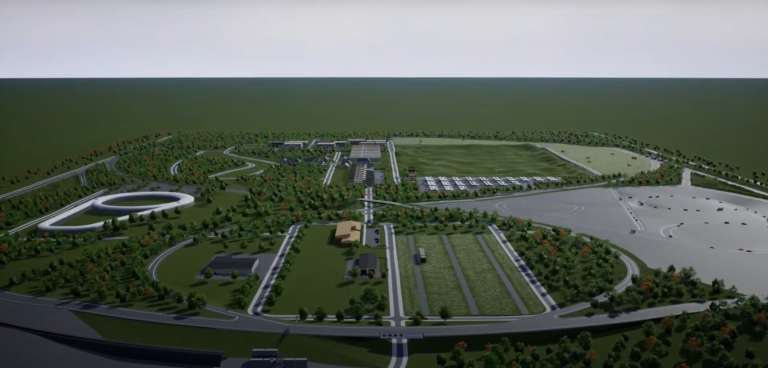RANTOUL — An autonomous test track may soon be on its way to the village of Rantoul and the decommissioned Chanute Air Force Base.
An intergovernmental agreement, which establishes the lease and purchase of the land, is expected to be reached on Tuesday between the village of Rantoul and the University of Illinois Board of Trustees.
The Illinois Autonomous and Connected Track, or I-ACT, is part of UIUC’s Smart Transportation Infrastructure Initiative. The project, spearheaded by Dr. Imad Al-Qadi, Bliss Professor of Engineering at UIUC’s Grainger College of Engineering, has been in the works since 2019 and will serve to simulate different environmental conditions for various types of self-driving vehicles, or smart transportation.
“This particular village is close to all kinds of transportation — the airport, the rail, and the interstate system,” Dr. Al-Qadi said at a Village of Rantoul study session on Tuesday. “This particular location lends itself to be a platform for conducting advanced transportation research and taking the state of Illinois to a leading position in that area.”

“Our goal is to have this place as the flagship when it comes to the smart mobility and 3-D mobility in this country. Along with that, we’re going to be looking into the economic impact as well as the workforce,” Al-Qadi said.
Over the next 30 years, the project is estimated to bring in $3.53 billion for the state’s economy, $483 million in total tax revenue between local, state and federal governments, and also deliver more than 23,000 full-time jobs (direct and indirect) to the area according to a report done by University of Illinois professor Dr. Sandy Dall’erba.

“[I-ACT] completely revitalizes this community and changes it dramatically for the future,” said Village of Rantoul administrator Scott Eisenhauer. “The job creation that will ultimately come about because of this facility is tremendous. The impact on the local economy will be substantial. Anytime a community, particularly one our size, can partner with a nationally recognized university on a project, there’s a lot of benefit that comes to that community through that partnership. To be on the cutting edge of technology that’s going to be shaping the way that we live and transport in the future is just an unbelievable opportunity.”
The construction of the test track is centered around the concept of platooning, driving large trucks closer together to cut down on gas and save money in the long run.
The timeline for the project is still being finalized, but Al-Qadi and Eisenhauer expect construction to take place within the next two years and research to begin at the end of 2024 or start of 2025.
According to Dr. Al-Qadi, there are no other existing sections or facilities that will allow the testing of freight at such speeds in the country. When completed, the track will be approximately 2.4 miles in length and sit on roughly 430 acres.
“The University of Illinois at Urbana-Champaign, University of Illinois-Chicago, and Northwestern University are considered top schools when it’s related to the transportation system,” Dr. Al-Qadi said. “It will allow testing at all environmental conditions, and even when the conditions are different, we will be building a controlled system to do testing at specific temperatures, rain intensities and so on.”
Estimates put the cost of the project around $69 million with the majority of that price tag coming from the instrumentation, control center and track itself.
As part of I-ACT, the University of Illinois has already allocated more than $4 million across 24 research projects and the development of a master’s program on smart mobility. I-ACT has also secured $5 million from university units such as the Investment for Growth program and $0.8 million from the Illinois Department of Transportation for planning.

